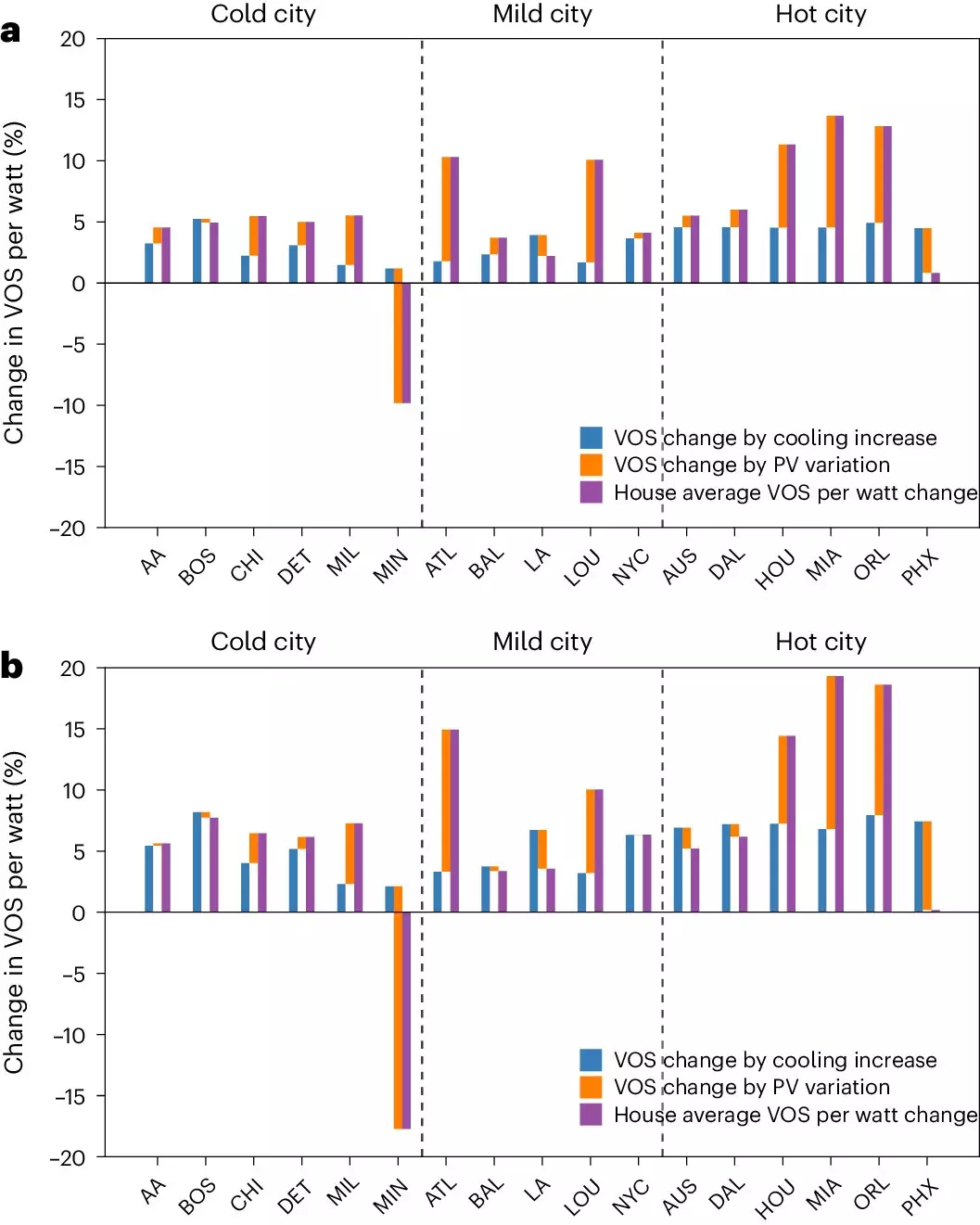The University of Michigan-led study predicts that the future value of residential rooftop solar panels across the United States will increase by up to 19% by the end of the century due to climate change. The study suggests that households should consider the long-term benefits when investing in solar installations, pointing out that the average 25-year lifespan of a solar system means it will operate under the climate conditions of 2050. This foresight could potentially yield even greater financial returns for homeowners.
One of the key drivers of the expected financial gains from rooftop solar panels is the rising demand for residential air-conditioning as global temperatures increase. The study also highlights the importance of solar-panel performance in response to climate change, which affects the overall value of rooftop photovoltaic systems. By analyzing data from 2,000 households in 17 U.S. cities, the researchers found that the value of rooftop solar panels is projected to increase in most locations, with Miami showing the largest gain while Minneapolis experienced a slight decrease.
Under the moderate climate-warming scenario considered in the study, residential space cooling demand is expected to rise significantly across all 17 cities studied. This increase in demand will lead to higher consumption of solar-generated electricity within households, reducing the need to sell excess power back to the grid. As a result, homeowners with rooftop solar systems stand to benefit more from self-consumption of solar energy, especially in states where the cost savings from using solar power directly offset the full retail price of electricity.
While the financial gains from rooftop solar are expected to primarily benefit households that can afford the initial installation costs, the study acknowledges the need for greater accessibility to solar energy. Various programs exist to make solar more affordable for lower-income individuals, including subsidies and community solar initiatives. Governments can also play a role by installing rooftop solar on public buildings to cover capital costs and extend solar benefits to tenants.
The study sheds light on the increasing value of residential rooftop solar panels in a changing climate. By considering future weather conditions and energy consumption patterns, homeowners can maximize the financial benefits of solar installations. Despite challenges posed by climate change, such as reduced solar-panel efficiency in some cities, the overall outlook for rooftop solar remains positive. As efforts to decarbonize the power-generation system gain traction, the adoption of solar energy is expected to play a crucial role in transitioning to a more sustainable and resilient energy future.


Leave a Reply
You must be logged in to post a comment.